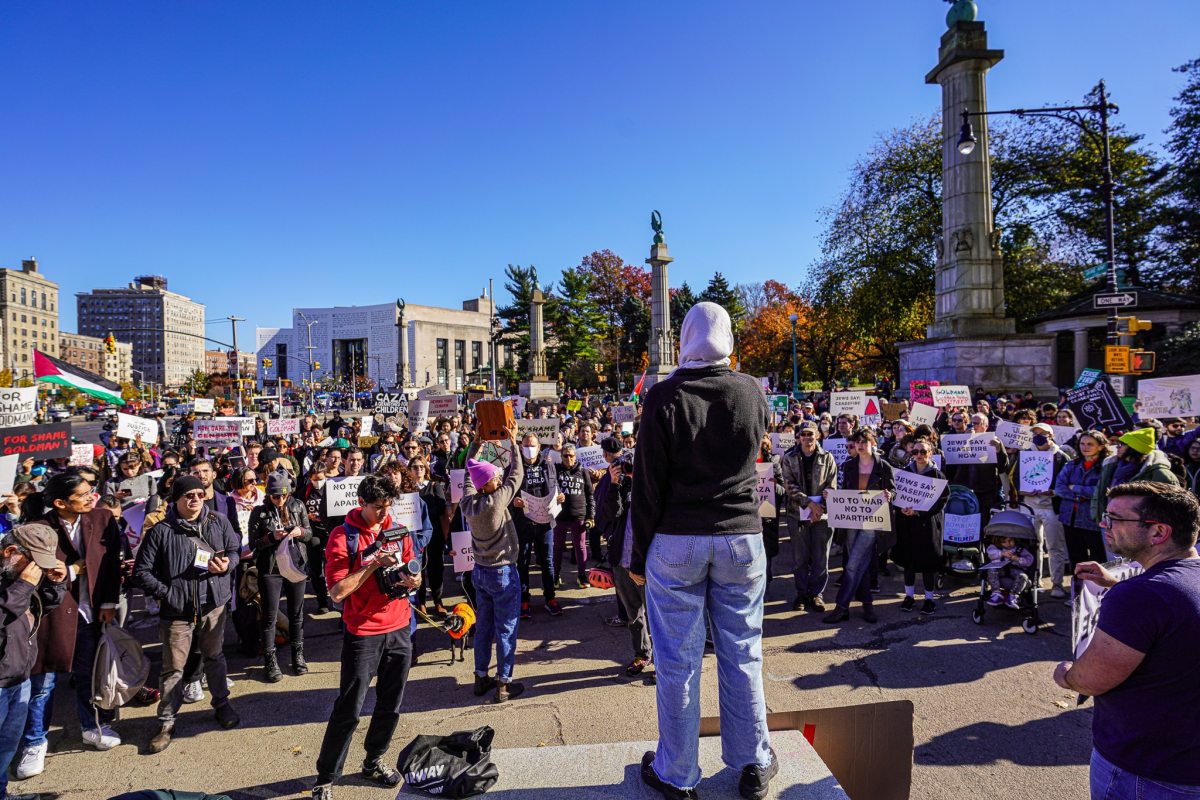College and university leaders at elite institutions are being criticized for saying too little, too late in response to the Hamas attack on Israel and subsequent events in Israel and Gaza. It is even alleged that some of them have hesitated to condemn Hamas due to antisemitism and donations from Arab countries.
Their lack of immediate and forceful condemnations of Hamas has been deemed “anti-Israel.” Prominent donors have condemned student statements in support of peace and Palestinian rights.
What seems lost in the complaints is any attention to the humanity of the people in both regions. The desire for peace is not appeasement to Hamas.
The media also make it seem that what is happening at Harvard and Penn is widespread, while ignoring the initiatives taking place at other campuses.
A major goal of education it to foster questions. I can question U.S. policy and still be patriotic. I can question Putin’s policies and still believe that the Russian people deserve respect and security.
Why is it I cannot question Israeli policies without being called antisemitic? Why can’t we question Hamas’ ideology without being called anti-Palestinian? Why can’t we advocate peace and security for Palestinians without be called apologists for Hamas?
We should not be afraid of questions, even when the questions and the answers are uncomfortable. We should be afraid of those who demand silence or unquestioning obedience to their dogmas. We learn from questions, not from mandated silence.
Campus leaders can organize teachable moments by calling upon faculty in Mideast Studies, Jewish History, Muslim and Islamic Studies, and U. S. and European foreign policy to organize panel discussions and study guides, as Dartmouth faculty have done. They can acknowledge that students are young and idealistic, just as they were one day.
After my tour in the U.S. Navy, I was part of Vietnam Veterans Against the War and could do so as a patriot without desecrating the lives of those who served and died. I opposed an unnecessary war that put our troops in harm’s way.
Unfortunately, today, vengeance has been chosen as a strategy. Vengeance is motivated by anger and ideology and has blotted out chances for dialogue and peace. It also has provoked hate-filled actions against innocent people on campuses and in other communities. Vengeance has exacerbated a victim-oppressor dynamic.
In response to the criticisms mentioned above, universities must uphold the right to free expression and the value of academic freedom. The principle of free speech is not a cover for hate speech.
We must uphold free expression even as we oppose violence and vandalism. We must recognize that people can have different views about government policies even as they have similar values such as the desirability for peace and equality of opportunity for secure lives.
Recognizing the humanity and rights of Israelis is not the same as condoning Israeli government policy, just as recognizing the humanity and rights of Palestinians is not the same as supporting Hamas. Both peoples deserve security and the right to self-determination according to international law.
The attack by Hamas, labelled as a terrorist group by the United States and the European Union, was a horrific, barbarous act deemed a war crime by the United Nations.
We should recognize that there are victims are both sides. University leaders should be among the first to call the attack and the response what they are: a prelude to war with no winners. Gaza will be in ruins, with many thousands dead and millions dispossessed and ill. Israel, too, will suffer as the balance of the economy shifts even further toward defense and control of Gaza.
It is time for university leaders to call for campus discussions, “teach-ins,” to recognize this teachable moment and recall the lessons of history, to discuss the humanity of all peoples, and advocate for an end to violence.
It also is time for religious leaders of all faiths, including scholars and campus chaplains, to encourage dialogue and learn from peacemakers like Nelson Mandela, Leymah Gbowee, and Mahatma Gandhi.
Every person deserves a chance to live in dignity with adequate food, shelter, safety, and a homeland as enunciated in The Universal Declaration of Human Rights. The first step is to acknowledge these first principles The second step is to advocate actions to realize the promise of these principles everywhere. College presidents and faculty should be in the forefront of this effort to preserve humanity from the scourge of war.
Some will say that colleges should stay out of political discussions, but the principles of free speech, academic freedom, and peaceful dialogue are political only to those opposed to them. They are essential to our students’ futures.
PEN-America, an organization of writers that promotes free expression worldwide, suggests guidelines for institutions to follow in times of conflict and controversy.
They make sense for establishing the conditions for teachable moments:
- Embrace free speech.
- Educate the community on the issues.
- Defend a space for open dialogue and discussion.
- Reinforce norms of civil discourse.
- Ensure physical safety.
- Support and demonstrate solidarity with targeted students, faculty, and staff.
- Investigate incidents of violence and vandalism and hold perpetrators accountable.
It is time for university presidents to be moral leaders denying any place on campus for hate and anger and promoting peaceful solutions through thoughtful discourse.
Dr. Robert A. Scott is president emeritus of Adelphi University and author of “How University Boards Work,” Johns Hopkins University Press, 2018.

































